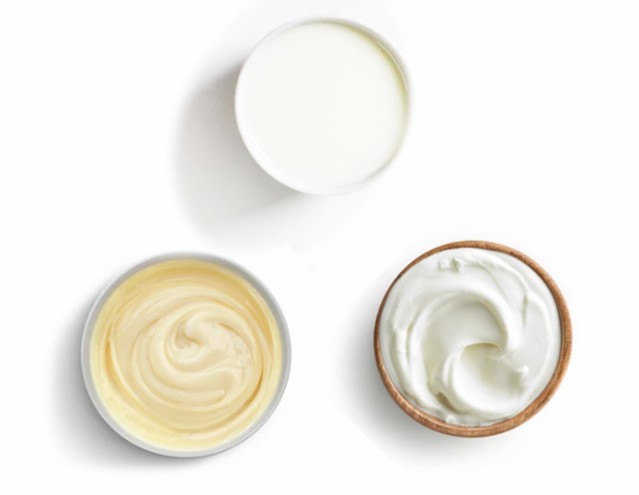Lifeasible offers services to help determine the total solids of milk and milk products to facilitate the production and quality control of milk and milk products. Total solids refer to the amount of non-water substances present in a milk sample or a milk product. These non-water substances include proteins, fat, lactose, minerals, and other solids. Measuring total solids in milk and milk products is an important quality control step in milk and milk product manufacture. For example, double-concentrated milk requires 25% total solids, and triple-concentrated milk is another common standard with 33% total solids. When recovering lactose from whey, the total solids also need to be controlled. In addition, measuring total solids helps determine the proper concentration of ingredients for various milk products, such as ice cream and cheese.
 Fig. 1 Some milk and milk products that require total solids determination.
Fig. 1 Some milk and milk products that require total solids determination.
We help determine the total solids in multiple milk and milk products, including milk, evaporated milk, and cream. We determine the total solids based on the reference method of international standards. In this method, the test portion is pre-dried in a boiling water bath, and the remaining water is subsequently evaporated in an oven at 102°C ± 2°C. Based on this method, the total solids content can be accurately determined.
Operation flow:

Main reference standard:
ISO 6731:2010
Lifeasible has extensive experience in providing services related to milk testing. We offer various milk and milk product testing services. We are here to provide total solids determination services. We strictly adhere to the determination method to ensure the accuracy of the measurement. We have enough apparatus and professional staff to complete the measurement efficiently and save measuring time. We are reliable and trustworthy. Please contact us!
References
Lifeasible has established a one-stop service platform for plants. In addition to obtaining customized solutions for plant genetic engineering, customers can also conduct follow-up analysis and research on plants through our analysis platform. The analytical services we provide include but are not limited to the following:
STU-CRISPR System Improves Plant Genome Editing Efficiency
April 19, 2024
Application of Exosomes in Facial Beauty
April 12, 2024